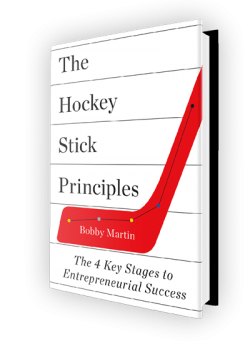…In which a successful founder turns down $250,000 to get what he really wants
In 2006, programmer Wes Aiken started Schedulefly, a clever online program that allows independent restaurants to organize employee work schedules. He invested no money to start it, but in 2008, he teamed up with co-founder and Harvard-grad Tyler Rullman to figure out a business model to make it profitable. Skip ahead to today, and Schedulefly is growing fast with nearly 5,000 indie restaurants loving the service.
But Wes’s moment of truth came three years ago, in 2011.
Wes’s second partner, marketer Wil Brawley, received a phone call from a restaurant chain executive requesting a proposal. He’d heard about how well Schedulefly was working at several locations and was interested in deploying the service to his other 1,000 locations. But to do so, he’d need additional technical requirements, perhaps integration down the road with the chain’s other computer systems, pilots, master service agreements, and lots of individual attention.
The Deal of a Lifetime?
Initially, Wes and Wil were elated with the big, breakthrough opportunity and started writing up a $250,000 proposal. But the proposal got them thinking about what all had to be done to serve this big customer and how it would change their business’s focus, which was serving the specific needs of indie restaurants. So they told the executive “no thanks” and referred him to their competitors. He was flabbergasted that they’d turned him down, so much so that he went dead quiet for a moment in disbelief. But then he told Wil he admired their position.
Be the Best At What You’re Good At
You can read more about Schedulefly’s decision in its blog post, “We left $250,000 (and a million headaches) on the table…” The crux for them was that they wanted to stick to what they’re best at — serving individual restaurants — and to maintain their own balanced lifestyles, which that tight market focus has afforded them. This has turned out to be a smart business decision because since then, Schedulefly has been able to keep its software simple for its users—which is exactly what indie restaurants want. Their customer satisfaction has fueled strong growth mostly through word-of-mouth. Could the company have added all those customers had it taken this big deal with a chain? Probably not.
Bigger Isn’t Necessarily Better
Taking on big customers isn’t always a good thing for start-ups. First, consider the dangers:
- The needs of this big new customer (BNC) may differ from those of your larger base of customers and lead to your larger base being less happy with your product.
- The BNC may start to dominate your time.
- The BNC may gain enough leverage to negotiate less favorable terms for future sales.
- If the business of the BNC goes away, you may be left high and dry.
The key takeaways for all aspiring entrepreneurs from Schedulefly’s moment of truth are:
- First, you can be successful without chasing each great deal that comes along.
- Second, serving a niche market allows you to cater to your customers’ specific needs.
- Third, you don’t have to grow exponentially; you can growth perfectly well from a strong niche base of loyal customers.
As the above referenced Schedulefly blog post concludes, “It’s 10:52 a.m. on a Friday. Rather than working through a rollout plan right now, I’m going to take my kids to the park.” I think that says it all.

